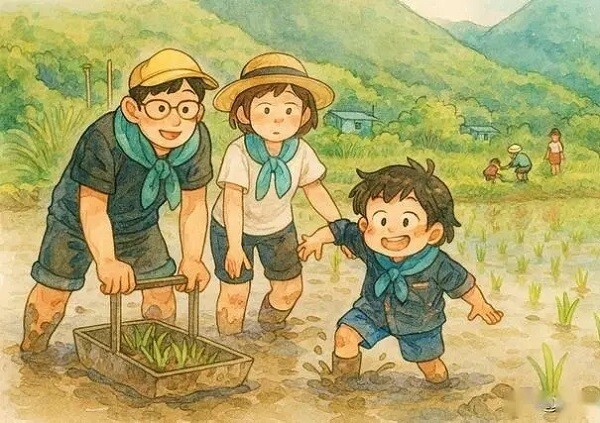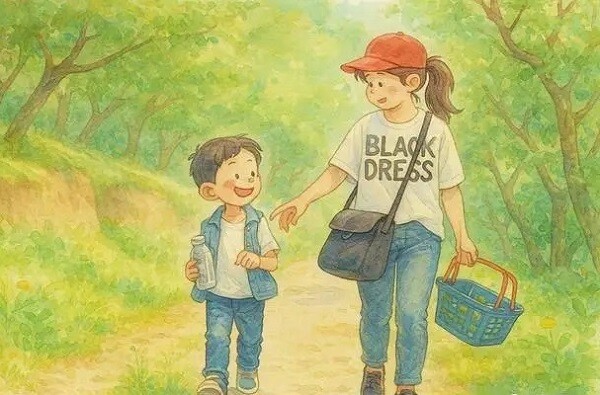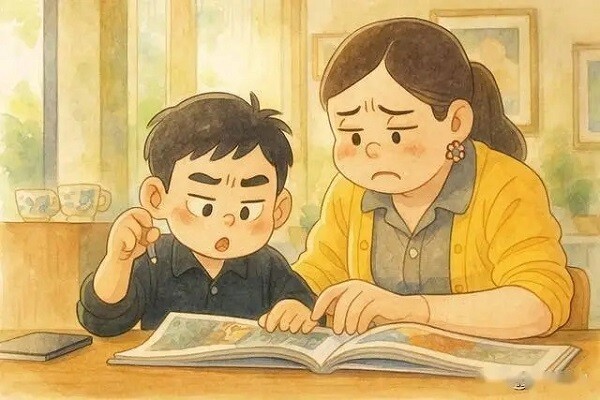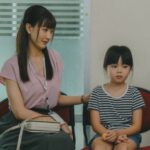Parents often worry about their children not performing well, getting hurt, or making mistakes. Even small tasks, like pouring a glass of water, can become a source of anxiety. As a result, parents tend to shield their children at all times, thinking, “I’m doing this for your own good!”
However, in today’s rapidly changing world, parents sometimes need to adapt their parenting methods to suit their family’s circumstances. Smart parents aren’t “all-powerful guardians” but rather “actors” who know how to show vulnerability.


Showing Vulnerability Opens Opportunities for Children to Experiment and Learn from Mistakes
“Mom doesn’t know how to solve this problem either, can you try?” “Dad has never used this software before, can you figure it out and teach me?” These seemingly casual remarks actually empower children to take the lead.
Children learn best by trying, making mistakes, and trying again. Small failures are the stepping stones to maturity.
When parents show vulnerability at the right time, children learn to become resilient.
Education isn’t just about academics; it’s also about life’s small lessons.

Showing vulnerability opens opportunities for children to experiment and learn from mistakes.

Showing Vulnerability Transfers Responsibility
Parents often complain, “My child has no sense of responsibility.” But from a child’s perspective, it’s more like, “When will I get the chance to be responsible?”
Experts advise that parents show vulnerability to foster responsibility in their children. For example, “Dad has a headache today, can you help with the chores?”
When parents step back, children step up. Naturally, they start thinking, “Should I sweep or mop first?” “Where should I hang the clothes to dry faster?”
As educator Suhomlinski said, true education is self-education. But to achieve self-education, one must first have a sense of self. When a child is trusted and empowered, they can develop into their true self.

When a child is trusted and empowered, they can develop into their true self.

Showing Vulnerability is the Starting Point of Independence
Scenario:
Child asks, “Mom, what should I do?”
Mother replies, “Mom doesn’t know either. Let’s figure it out together.” The child immediately becomes enthusiastic, “I can do it! I know how. I’ll teach you, Mom!”
At that moment, roles and expectations are reversed.
Through this approach, children learn on their own, gaining a sense of accomplishment. They discover their own capabilities and become confident in teaching others. This is how independence grows.

Children learn on their own, gaining a sense of accomplishment.

Showing Vulnerability is the Warmth of Friendship
Some believe showing vulnerability means giving up.
In reality, it’s about giving opportunities.
Teaching a child to ride a bike is a good example: At first, you hold on tightly, then gradually let go. Letting go too soon can cause a fall, while holding on too long prevents effective learning.
The purpose of parents being there is to let children know that even if they fall, there’s always support. Education isn’t about control but about companionship.

The purpose of parents being there is to let children know that even if they fall, there’s always support.

Showing Vulnerability is a Sign of Maturity for Both Parents and Children
True maturity comes from acknowledging one’s weaknesses. Showing vulnerability is both honest and wise. When parents admit their limitations, children also learn to accept their own flaws.
So, when parents step into the background, it’s an opportunity for children to take center stage.
Effective family education isn’t about “you do, I watch,” but about “you learn, I wait.” Sometimes, the most important thing is for parents to trust their children, allowing them to find their own path.

When parents admit their limitations, children also learn to accept their own flaws.
Essentially, education isn’t about control but about gentle guidance, helping children explore and grow. Love sometimes means letting go, allowing children to stumble, rise, learn, and mature.
When parents create a safe space for children to discover themselves, they feel loved and more confident in facing life. Maturity comes not just from successes but also from failures and the valuable lessons life teaches.






































